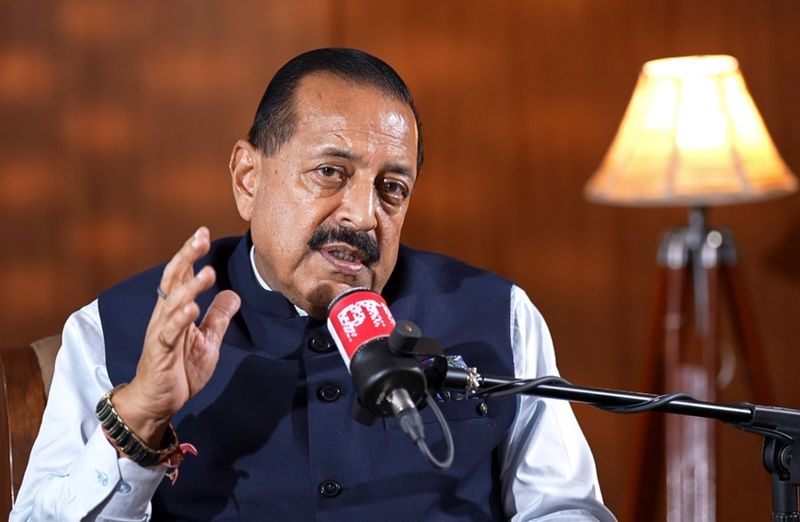
Policy Expansion for Government Workers
India’s Central Government has clarified that employees can utilize 30 days of earned leave annually to care for elderly parents, according to Union Minister of State for Personnel Jitendra Singh. The minister addressed this during a Rajya Sabha session, emphasizing that the existing Central Civil Services (Leave) Rules, 1972, already permit such leave for personal reasons. This provision, which includes 20 days of half pay leave and eight days of casual leave, reflects the government’s commitment to balancing professional duties with familial responsibilities. The clarification comes amid growing calls to modernize workplace policies to support aging populations and promote work-life harmony. While the rules are already in place, the minister’s explicit mention of elderly care underscores the importance of this benefit for a significant portion of the workforce. Employees in sectors like healthcare, education, and public administration, who often face caregiving challenges, may find this provision particularly relevant. The move aligns with broader societal shifts toward recognizing elder care as a critical aspect of employee well-being.
Legal Framework and Leave Types
The Central Civil Services (Leave) Rules, 1972, form the backbone of leave entitlements for Central Government employees. These rules grant 30 days of earned leave, 20 days of half pay leave, eight days of casual leave, and two days of restricted holiday per year. The minister highlighted that these leave types are not restricted to specific purposes and can be used for any personal reason, including caregiving for elderly parents. This flexibility is crucial for employees managing multiple responsibilities, particularly in an aging demographic where family care demands are rising. While the rules have remained largely unchanged since 1972, the minister’s emphasis on elderly care suggests a growing awareness of the need for adaptive workplace policies. The inclusion of caregiving as a valid leave reason is a subtle yet significant shift in how employee benefits are perceived and applied. This aligns with global trends where governments are revisiting leave policies to address demographic challenges.
Impact on Workforce and Family Dynamics
The provision of 30 days leave for elderly care has far-reaching implications for both employees and their families. For government workers, this benefit helps mitigate the stress of juggling professional obligations with caregiving duties. In a country where the elderly population is projected to grow significantly in the coming decades, such policies can reduce burnout and improve job satisfaction. The policy also addresses the broader societal issue of informal caregiving, which often falls disproportionately on women and working adults. By formalizing this support through leave entitlements, the government is recognizing the economic and emotional value of caregiving. However, challenges remain, such as ensuring equitable access to this benefit across all sectors and addressing potential gaps in the current framework. The minister’s clarification may serve as a catalyst for further policy reforms, particularly as the workforce continues to evolve in response to demographic and societal changes.
Comparative Analysis with State Policies
While the Central Government’s policy provides a baseline for leave entitlements, state governments have implemented varied approaches to caregiving support. For instance, states like Tamil Nadu and Kerala have introduced additional benefits for employees caring for elderly relatives, including subsidized childcare and flexible work hours. These state-specific initiatives highlight the growing recognition of caregiving as a critical workplace issue. However, the lack of uniformity across states can create disparities in employee benefits, complicating workforce management for both public and private sectors. The Central Government’s clarification may encourage states to adopt more standardized policies, ensuring consistency in employee rights. This could also influence private sector employers, who may follow suit to remain competitive in attracting and retaining talent. As the demand for caregiving support continues to rise, the interplay between central and state policies will shape the future of workplace benefits in India.
Future Outlook and Policy Reforms
The minister’s clarification marks a step toward modernizing India’s workplace policies to better serve an aging population. However, the current framework has limitations, such as the fixed nature of leave entitlements and the lack of provisions for extended caregiving needs. Experts suggest that future reforms could include flexible leave options, mental health support for caregivers, and subsidies for elderly care services. The government’s emphasis on elderly care may also prompt a broader discussion on how to balance professional and personal responsibilities in an increasingly complex work environment. As the workforce evolves, the need for adaptive policies will grow, requiring continuous evaluation and updates to existing frameworks. The Central Government’s initiative, while significant, represents just one part of a larger conversation about how to support both employees and their families in an era of demographic and societal transformation.




